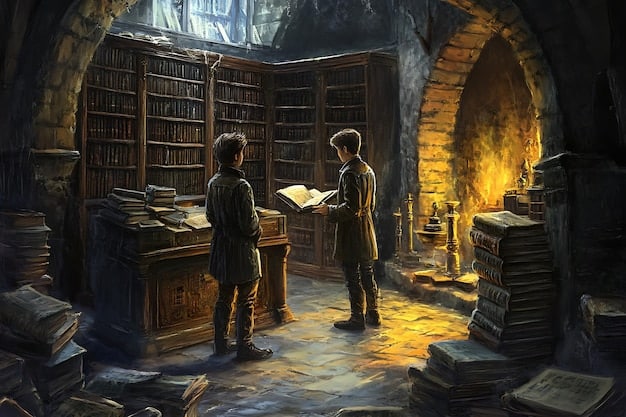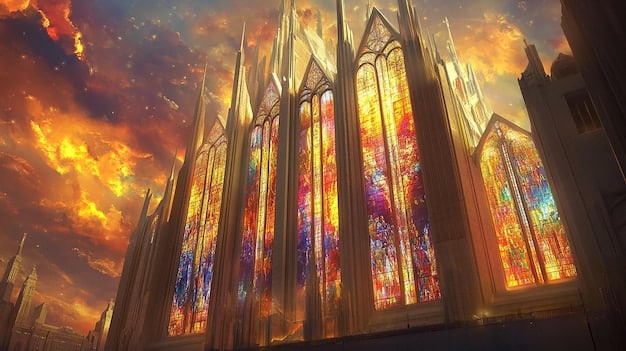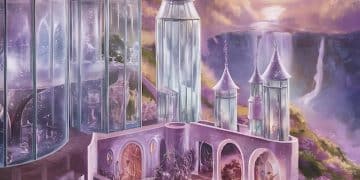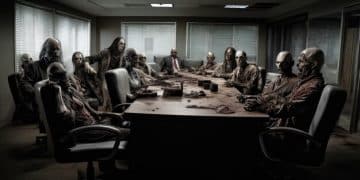The Politics of Magic: Mages, Kingdoms, and the Eternal Fire in Game Lore

The Politics of Magic examines the intricate power dynamics between mages, kingdoms, and religious institutions like the Church of the Eternal Fire, portraying how magical abilities shape political landscapes and create persistent tensions within societies in game lore.
Dive into the complex world where magic isn’t just a power, but a political force. Explore the politics of magic: examining the tensions between mages, kingdoms, and the Church of the Eternal Fire, and how these elements clash in captivating game narratives.
The Delicate Balance of Power
Magic in many game worlds is not merely a fantastical element; it’s a quantifiable, influential force that shapes the political landscape. The presence of mages, individuals capable of wielding this power, introduces a dynamic that traditional power structures – kingdoms and religious institutions – must constantly negotiate.
This interplay creates a delicate balance, often fraught with tension. Kingdoms seek to control or harness magic for military or economic advantage, while religious organizations may view it as a threat to their authority or a manifestation of impure forces.

The Mage Guilds and Their Influence
Mage guilds, schools, or circles often emerge as centers of magical knowledge and power. These organizations can wield significant political influence, acting as advisors to rulers, providing magical services, or even challenging the authority of kingdoms.
- Economic Leverage: Guilds can control access to magical resources, artifacts, or services, giving them significant economic leverage over kingdoms.
- Military Power: Skilled mages can be formidable warriors, making guilds valuable allies or dangerous enemies in times of war.
- Political Intrigue: Guilds may engage in political maneuvering, supporting or undermining rulers to further their own interests.
The existence of mage guilds adds another layer of complexity to the political landscape. Kingdoms must navigate their relationship with these organizations carefully, balancing the benefits of their expertise with the potential threat to their authority.
Kingdoms and the Control of Magic
Kingdoms, with their established hierarchies and armies, represent a traditional form of power. However, the presence of magic disrupts this order, requiring them to adapt and find ways to integrate or control magical forces within their realms.
There are many strategies employed by kingdoms, this includes everything from licensing mages to establishing magic military units to outright banning all use and study of magic.
Strategies for Integration and Control
Kingdoms often employ various strategies to integrate or control magic within their borders. A common approach is the establishment of royal academies or magical divisions within the military, where mages are trained and employed by the state.
- Royal Academies: These institutions provide a structured environment for training mages, ensuring loyalty and adherence to the kingdom’s laws.
- Magical Military Units: Integrating mages into the military strengthens a kingdom’s defensive and offensive capabilities.
- Licensing and Regulation: Requiring mages to register with the state and obtain licenses allows kingdoms to monitor and control their activities.
These efforts are often met with resistance from mages who value their independence, leading to clandestine activities and power struggles.

The Church of the Eternal Fire and its Stance on Magic
Religious institutions, like the Church of the Eternal Fire, often view magic with suspicion or outright hostility, perceiving it as a rival power or a source of corruption. The Church, with its moral authority and widespread influence, can exert significant pressure on both kingdoms and mages.
The Church may preach that magic is unnatural, dangerous, or a gift only to be used by those they see fit, creating a societal divide between those who practice or support magic and those who adhere to the Church’s teachings.
Moral Authority vs. Magical Power
The Church’s moral authority often clashes with the practical power wielded by mages. This conflict can manifest in various ways, from public condemnation of magic to outright persecution of mages.
- Propaganda and Education: The Church may use its influence to shape public opinion against magic, portraying it as evil or dangerous.
- Inquisition and Persecution: In extreme cases, the Church may establish inquisitions to hunt down and punish mages.
- Political Alliances: The Church may ally with kingdoms that share its views on magic, further isolating and weakening mages.
This power dynamic often leads to complex alliances and conflicts, with kingdoms, mages, and the Church vying for control and influence.
Alliances and Conflicts: A Web of Intrigue
The tensions between mages, kingdoms, and the Church of the Eternal Fire often result in a complex web of alliances and conflicts. Kingdoms may ally with mages to gain military advantage, while the Church may support kingdoms that suppress magic.
These alliances are often fragile and opportunistic, shifting as power dynamics change and new threats emerge.
Examples of Shifting Alliances
History can show examples of kingdoms siding with mages against religious zealots, or a church funding rebel mages hoping to influence the government.
Here are some examples:
- Kingdom-Mage Alliance: A kingdom, facing invasion, may seek the aid of a powerful mage guild, offering land and resources in exchange for their magical support.
- Church-Kingdom Alliance: The Church may support a kingdom that promises to eradicate magic within its borders, providing financial and political backing.
- Mage-Rebel Alliance: Mages, oppressed by a kingdom, may join forces with rebel factions to overthrow the government and establish a more mage-friendly regime.
The Narrative Potential
The premise around tension between mages, kingdoms, and the religious zealots creates fertile ground to build conflict, character development, and moral dilemmas and the narratives woven through this can lead to captivating stories.
Exploring these conflicts allows player choices to shape the political landscape, and explore the moral implications of unchecked power whether that be magical or political.
The Long-Term Consequences
The politics of magic can have profound long-term consequences, shaping the cultural, social, and technological development of a civilization. The suppression of magic may stifle innovation, while its uncontrolled use could lead to societal collapse.
Understanding these consequences can help build a deeper appreciation for the complexities of game worlds and the choices players make within them.
| Key Point | Brief Description |
|---|---|
| 🧙♂️ Magic’s Influence | Magic shapes political landscapes and power dynamics in game worlds. |
| 🏰 Kingdom Control | Kingdoms try to control magic for military or economic advantage. |
| 🔥 Church’s Stance | The Church often views magic as a threat, leading to conflicts. |
| 🤝 Alliances | Fragile alliances form between mages, kingdoms, and religious groups. |
FAQ Section
▼
Magic introduces an element of power that can challenge existing authority structures, causing tension and conflict between mages, kingdoms, and religious institutions vying for control.
▼
Kingdoms attempt to control magic through measures like royal academies, magical military units, and licensing systems to regulate and monitor mages within their borders.
▼
The Church often views magic with suspicion, perceiving it as a rival power or a source of corruption, leading to public condemnation, persecution, and political alliances against mages.
▼
Alliances range from kingdom-mage agreements for military support to church-kingdom coalitions aimed at eradicating magic, reflecting the shifting power dynamics and mutual interests.
▼
The political handling of magic can profoundly affect a civilization’s cultural, social, and technological development, potentially stifling innovation or leading to societal collapse based upon political decisions.
Conclusion
The intricate dance between mages, kingdoms, and the Church of the Eternal Fire showcases the multifaceted nature of power in game worlds. By understanding these political dynamics, players can gain a deeper appreciation for the narratives and choices they encounter, enhancing their overall gaming experience.





